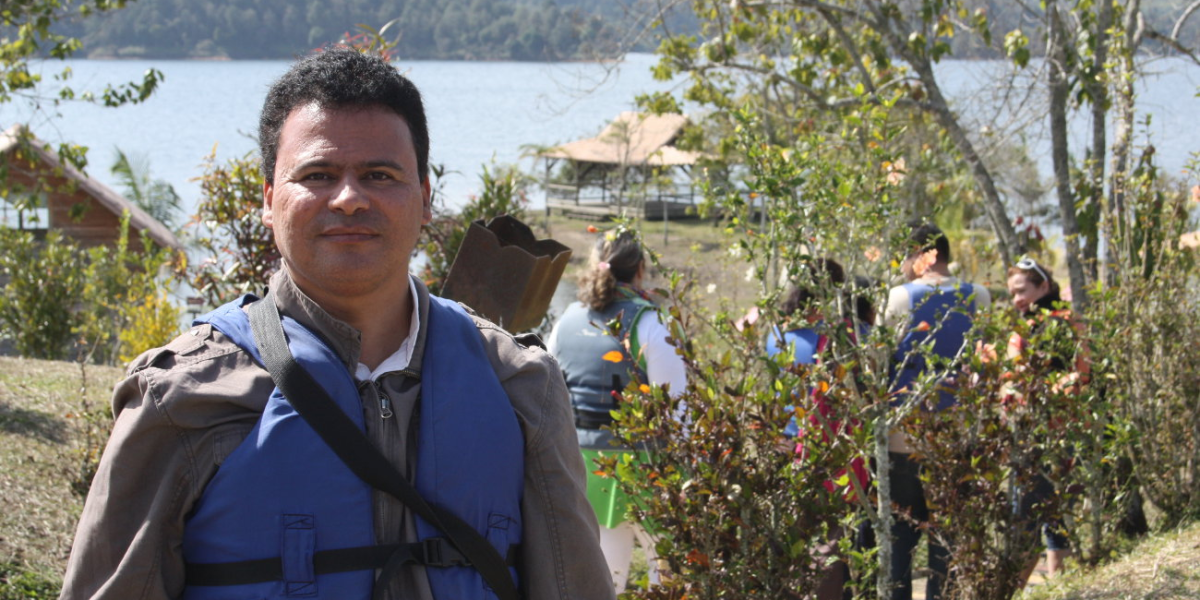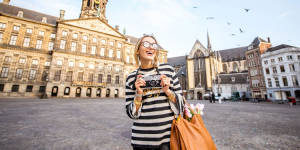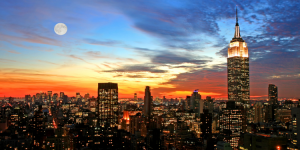
Albeiro comes from Colombia. A digital communications specialist, he moved to Cambodia 16 years ago after joining a missionary group. Nowadays, he is a teacher in Kep Province, and enjoys archeology.
Hi Albeiro, can you please introduce yourself?
Hello. I was born in Amalfi, an Andean town of Colombia in northern South America. I am 45 years old. I am a social communicator and journalist, and hold a Master's in Digital Communications. In 1995, I joined the Salesians of Don Bosco, and I applied to the Missions for Asia, a region of the world that filled my dreams since I was a kid. I arrived in Cambodia on October 12, 1999 at 9:00, and I remember this date very well because it was the day when Christopher Columbus discovered the Americas. I have also been to other countries for studies, or for getting support for my work on education and humanitarian aid to Cambodian children and youth suffering poverty. In 2007, I created the social communication section at the Don Bosco Technical School in Sihanoukville and in 2011 in Kep Province.
Why did you choose to expatriate to Cambodia?
I came as a missionary, but it was my dream to work my mission in Asia, the land of one of my ancestors. I didn't come here to convert people into one religion, but to support people, and to learn the wisdom and traditions of the ancient continent.
Since I was a kid, countries like China and India inspired my dreams. For example, one of my heroes was Bruce Lee. Although he died when I was just three years old, his movies and philosophy stayed with my family. Also, one of my ancestors of unknown identity — so far — is a Chinese man, who came to Colombia at the end of the 19th century to work in the railway constructions. When they told me that my destination was Cambodia, I looked on the map, and it seemed very close to China and India — Indochina peninsula — which was enough for me to accept.
Cambodia in many ways is also similar to my own country with a troublesome history of conflicts and, at the same time, richness in human values, natural resources, and culture. So it was very meaningful for me to join a humanitarian team representing the Colombian people.
What procedures did you have to follow to move to Cambodia?
I first arrived in Thailand, where I was welcomed by the members of my Congregation. I was at the time 29 years old. A few months after my arrival in Phnom Penh, I was sent for some English studies to Manila. Back to Phnom Penh on May 2000, I continued with my Khmer studies while being an assistant of the technical students of Don Bosco. The learning of the culture and language is a condition to work here, and I have dedicated my life to it with real attention.

How long have you been in the country?
I arrived in Phnom Penh in 1999. In May 2001, I was sent to Jerusalem for studies until 2005 with summers in Malta and Ireland to improve my English, and also Italian courses in Perugia. In October 2005, I was assigned to Don Bosco in the Cambodian border city of Poipet. It's been already 16 years since I moved to Cambodia.
What has attracted you to Kep?
I was assigned to lead the opening of a new educative project for children and young people from poor communities in this province in 2011. Thanks to the support of many people and organizations, I could establish a technical school and the Children Fund. Kep Province is a wonderful land — it is the smallest Province of Cambodia (created in 2004), with story that goes back to the beginning of the 20th century as a French Colony. It became a summer city for the Phnom Penh elite before the war, and now it's a living memory of the conflictive times of the recent Cambodian history. In this peninsula, you find islands, hills, caves, beaches, mangroves, jungles and beautiful views.
What surprised you the most at your arrival?
Well, it's been a long time since my arrival. The Cambodia I saw in 1999 is very different to this one of 2016. But I remember that I came on a plane from Bangkok, and I was amazed by the controversy — from a modern and rich metropolis to a very poor town that Phnom Penh was. Many foreigners complain today about Cambodia, but the Cambodia of the early 2000s was really depressing — no roads, dirty water, health centers like stables, hundreds of beggars following you. Today, there are still many problems, but it is true that Cambodia is seeing development, at its own way, but it is real. You can now travel from Phnom Penh to Kep by car in two hours — when I came to Cambodia for the first time it was ten hours.
Was it difficult to find accommodation? What types of accommodation are available?
I live in Kep. Kep is becoming a tourist destination, and I am happy that it keeps the eco-friendly concept. It is not a place with nightlife, but it is not a problem for me. Kep is about meditation, contemplation, love for ecology and archeology. There are many foreigners here, who are owners of hotels and restaurants. There is a primitive way of accommodation at the Rabbit Island — you can stay only one night. It is very natural, but it is a nice adventure.
What are the local labour market's features?
Kep is small. Anyway, it is possible to find a job, especially in hotels and restaurants. I think it would be a good option for an expat. In fact, there are many expats working in the tourism and hospitality sector.
How do you find the Cambodian lifestyle?
Cambodians are very much simple. Although there is poverty, families keep a kind of serenity. This is what attracts many people to Cambodians, and makes life pleasant. They do not need too many things. If they have a house, they do not worry about filling it with things. You can see Cambodians sitting in the lotus position in the most curious places. I remember once seeing a guy sitting on the top of a big truck in Poipet, like a Buddha, while the truck was moving. Of course, many rich Cambodians have started to complicate their lives, and enter the global consumption.
Have you been able to adapt to the country and to its society?
I think so. There are many elements in my life that can apply some resistance. I am a Latino, and we have our own character that sometimes can crash with the Cambodian mentality. But I think Latinos can get along better with Cambodians than other cultures because we have many similarities — we are affective, we love music and dance, and we are optimistic, even in the worst times.

How is your everyday life in Kep?
I am a teacher, so my life goes around that. I also teach Khmer language to foreigners, so I have a lot activities — preparing journalism lessons for my students, administrative tasks, looking for more sponsors, writing projects, taking photos and videos. In the evening, I like to sit in front of the sea with some friends over a coffee.
Any particular experience in the country you would like to share with us?
I am very proud, and it adds value to my life when I meet old students, I find out that they are working, and doing well. Recently, a Colombian lady came from Australia. She knew about me from my blogs. But before coming to Kep, she had stopped in a place where she met a young journalist. When he heard she is from Colombia, he told her that his journalism teacher is from Colombia as well, and he spoke about his learning experience. When I heard the story from her, I realised how beautiful education is.
What is your opinion on the cost of living in Kep?
I find it very expensive. As it is a small province, it does not have much production (fish, pepper, and fruits). Moreover, it's not a place where many back packers come. So, sellers increase prices for tourists, but things also become expensive for residents. Our downtown is Kampot City, 25 kilometers away from Kep Beach. We go to Kampot to buy anything we need.
How do you spend your leisure time?
I am an amateur in archeology, so I love to visit old places and ruins. Here in Kep, Kampot, and Takeo there are a lot of places to see. I also love to experience the real Cambodian life in the rural areas, so visiting villages is a pleasure for me. I lead tourist groups, but it is something I do very rarely, and with people who like uncommon tourist tracks, and want to see the country in a different way.
Your favourite local dishes?
I like crab and durian very much.
What do you like the most about Cambodia?
The people. Cambodian views are wonderful, but it would not be the same without the smiling Cambodian people. I also love the Khmer architecture and language.
What do you miss the most about your home country?
I miss Colombian people as much as I love Cambodian people. I am very happy about the fact that we are now in a peace process, and I hope Colombia will end years of conflict. I think Colombia is a country with a promising future and it has many things to offer to the world — talent, wonderful lands, and beautiful people.

What has motivated you to write your blog “I See Cambodia”?
I wanted to share my views on the country I chose as my second home. In the beginning, I wrote some extensive articles, but now I want to share more concrete information, as well as photos and videos. I think Cambodia is still an unknown country, and I feel the duty to make others aware of Cambodia, its people, problems, and talents.
Would you like to give any advice to soon-to-be expatriates in Cambodia?
Make an effort to learn Khmer language, even for the purpose of a basic conversation. Your life will be much easier, and Cambodians will love you more. I really feel sorry when expats who have been in Cambodia for many years can hardly say “Hello”. You become isolated and separated from the society in which you are living. Some expats learn the Cambodian news from foreign newspapers, which don't necessarily reflect reality.
What are your plans for the future?
From Cambodia, I have had the opportunity to get to know many other countries. Every time I visit Colombia, I choose a different route. In 2013, I made a world tour — I left Cambodia went to Europe then to the US, Colombia, then back to the US, crossed the Pacific Ocean, went to Hong Kong, then back to Cambodia. Cambodia has given me the opportunity to know people from all around the world. I feel like a real citizen of the world, and it gives me more love for humanity and more hope for the future of humanity. My plan now is to continue working for children and the youth, trying to improve their future and to continue seeing the rest of the world.



















